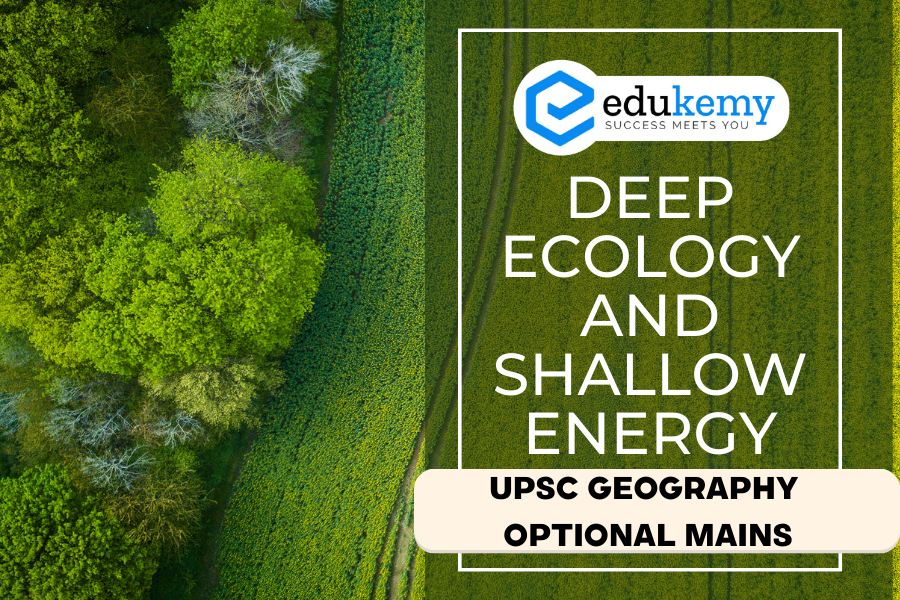
Deep Ecology and Shallow Ecology represent two contrasting perspectives on environmental philosophy, each offering distinct approaches to our relationship with nature. Shallow Ecology, often associated with mainstream environmentalism, tends to focus on addressing environmental issues within the existing societal and economic framework. It emphasizes conservation and preservation to maintain the well-being of human societies without fundamentally questioning the underlying structures that contribute to ecological problems. On the other hand, Deep Ecology delves into the root causes of environmental degradation, advocating for a more profound transformation in human attitudes and values. Developed by thinkers like Arne Naess, Deep Ecology urges a shift from anthropocentrism to ecocentrism, fostering a deeper connection between humans and the entire ecological web. This philosophical distinction underscores the fundamental divergence between the two concepts, with Shallow Ecology addressing surface-level symptoms and Deep Ecology aiming for a more profound, systemic change in our approach to nature.
Contents
Answer
The concept of deep and shallow ecology are modern day environmental philosophies that were introduced by the Norwegian philosopher Arne Naes in 1972, on the backdrop of increased anthropocentrism-led environmental degradation.
| Parameters | Deep ecology | Shallow ecology |
| Interpretation | Communist anthropocentrism is blamed for the environmental crisis. Every living thing has the right to live and flourish. | Capitalist nature is valuable as far as it serves the human interest |
| Nature | Philosophical | Technocratic |
| Please of man in environment | God-nature-man | God-man-nature |
| Approach | Radical-making large-scale changes in lifestyle | Utilitarian-continuing the present lifestyle within certain weeks to reduce damage to the environment |
| Variant | Gianism | Sustainable development |
| Example | Rural perspective towards nature – nature worship Rishis as Sukhdev (Parrot God), Hanuman as Vanar Avatar (monkey god) | Urban perspective towards nature – cut forest for urbanization followed by cleaning of walls |
The current policies and measures of the government across the globe is being driven by Shallow ecology. However, it has received criticism from the deep ecologist who contend that shallow ecologism has further widened the inequalities between the countries. For example, the US constituting 5% of world population consumes 17% of global electricity.
In case you still have your doubts, contact us on 9811333901.
For UPSC Prelims Resources, Click here
For Daily Updates and Study Material:
Join our Telegram Channel – Edukemy for IAS
- 1. Learn through Videos – here
- 2. Be Exam Ready by Practicing Daily MCQs – here
- 3. Daily Newsletter – Get all your Current Affairs Covered – here
- 4. Mains Answer Writing Practice – here

